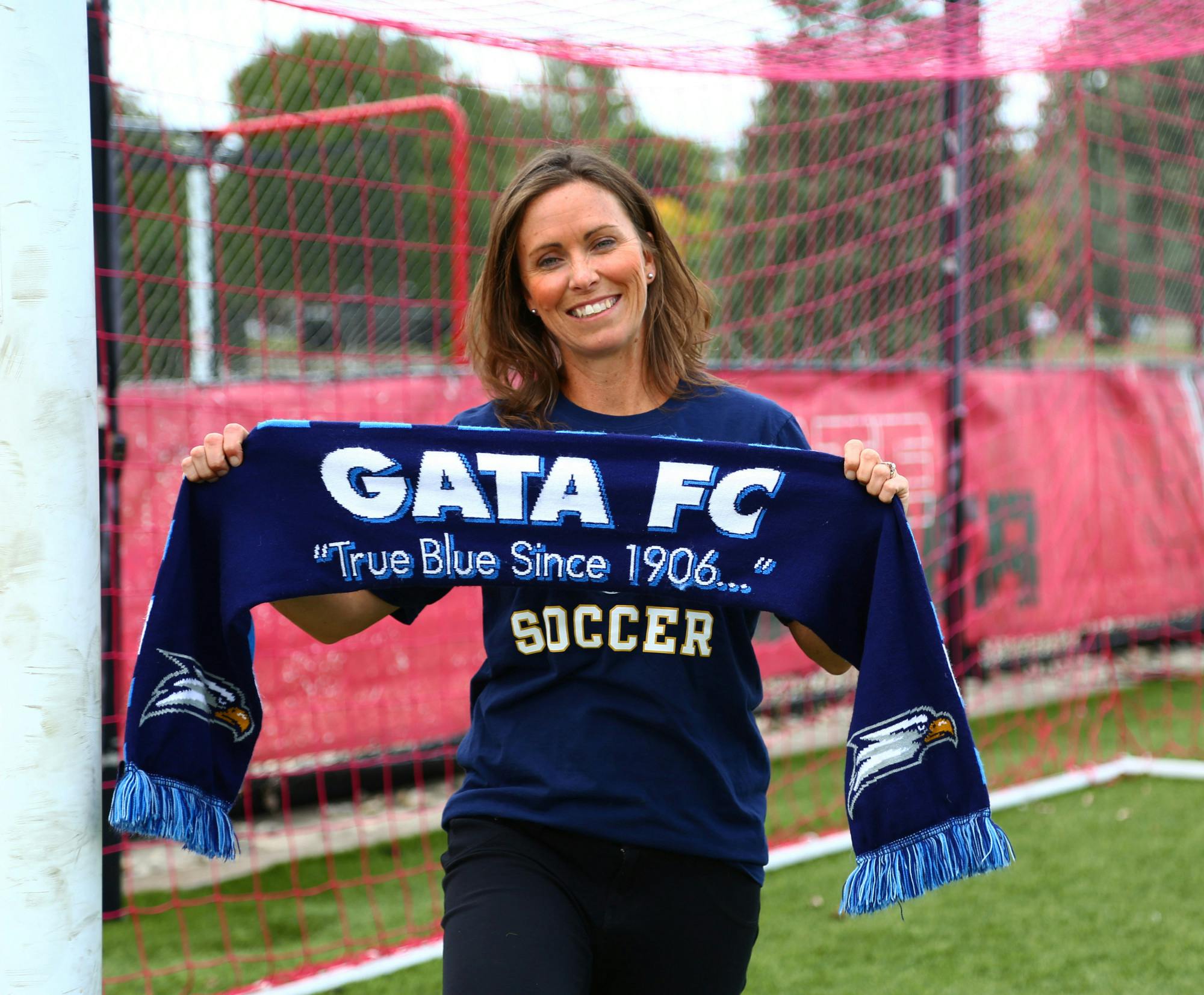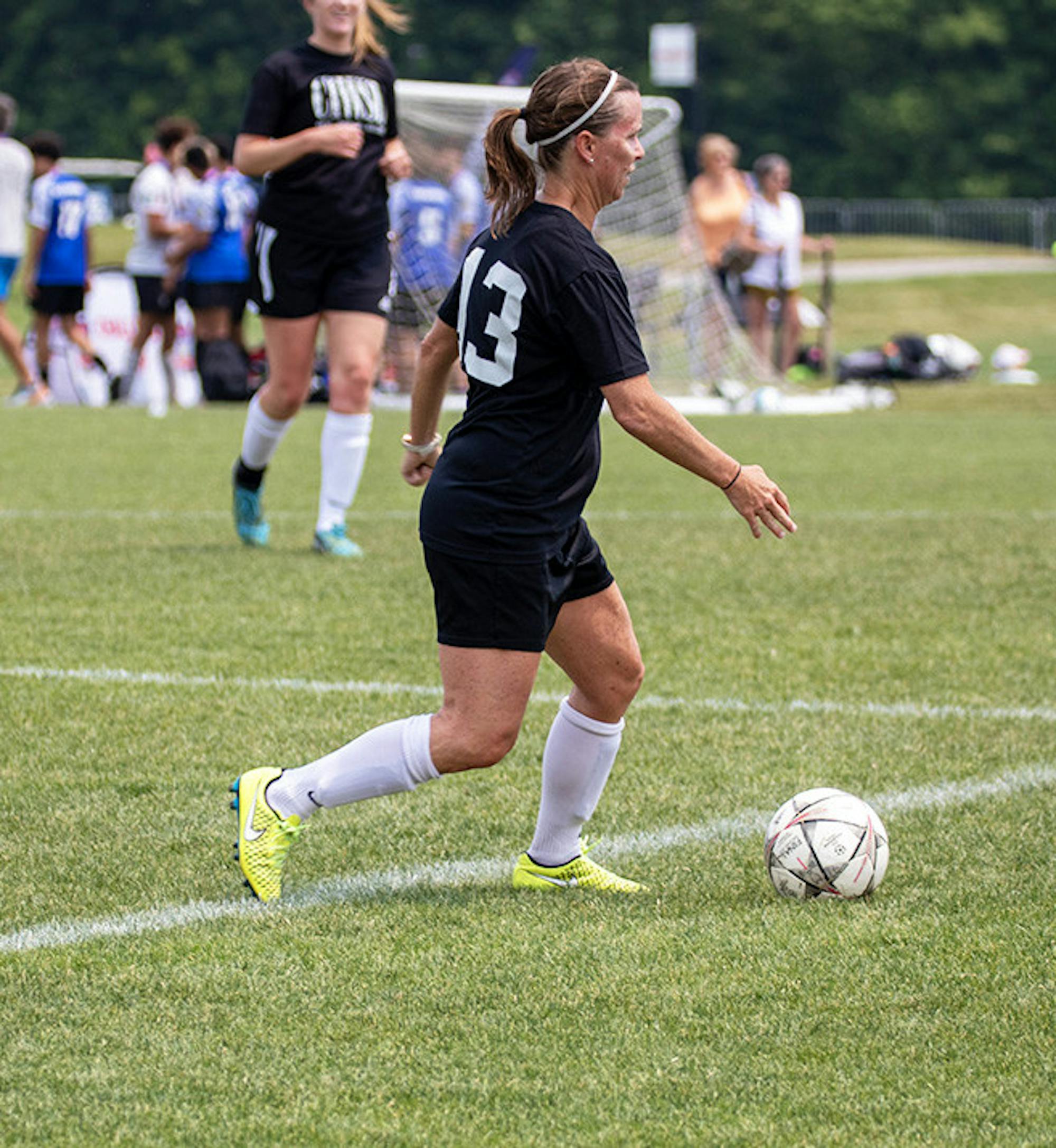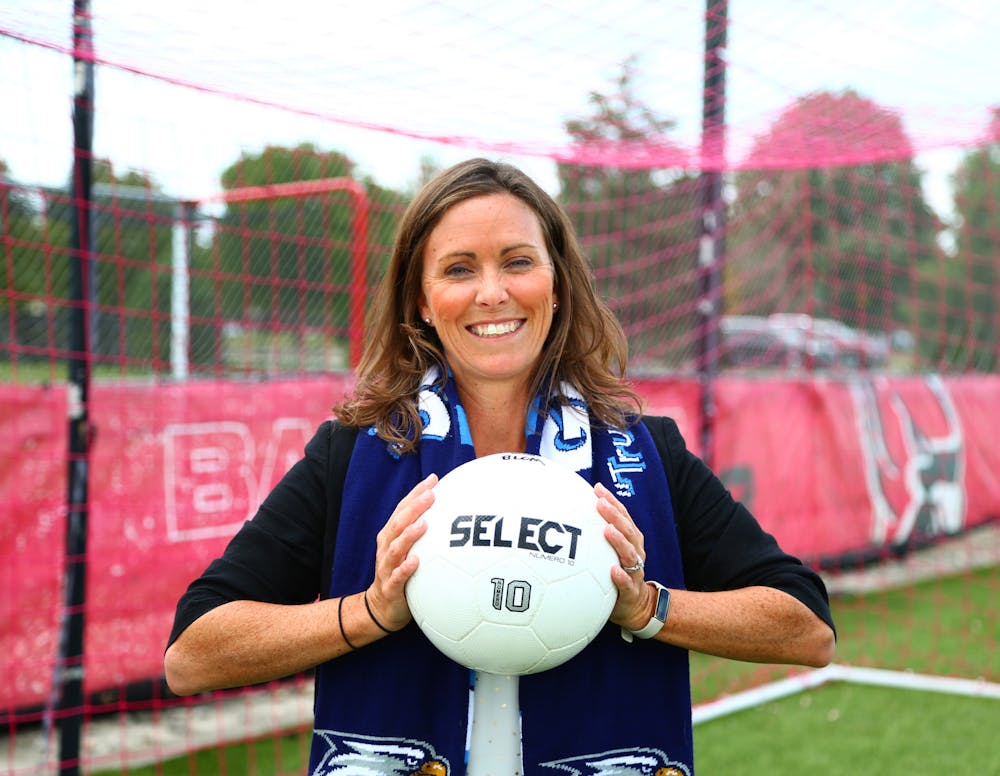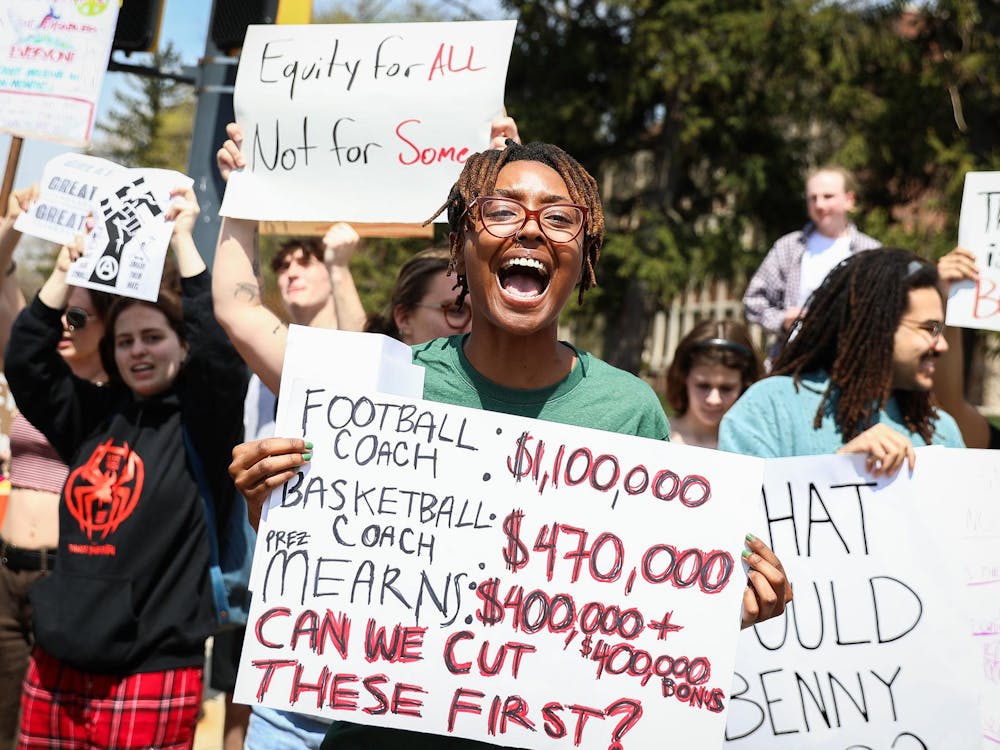Lindsey Blom still remembers where she was when someone told her to give up on her dreams.
Blom was on a soccer field in Indianapolis when a coach from a Division III school told her she would never play college soccer. For many people, that kind of discouragement would be career-ending.
“I used it as fuel to try and prove him wrong… In the end, I did,” Blom said. “I worked hard to stay focused and take every opportunity to learn and grow. I just played as often as I could.”

Blom's experience overcoming adversity helps her empathize with student athletes she has mentored during her 15-year career at Ball State University. Blom has worked as a faculty athletic representative, chairperson for Ball State’s School of Kinesiology, and professor of sport and exercise psychology, but was just named associate athletic director for championship performance. Over the course of her career, she has kept that early setback in the front of her mind as she counsels students through a sense of belonging and identity.
Jorge Ballesteros, sports psychologist and former graduate assistant, studied under Blom in the sport and exercise psychology master’s program at Ball State, as well as the master’s program in counseling clinical mental health.
“Under [Blom’s] guidance and supervision, I was able to start applying for Ph.D. programs in counseling psychology, but I remember I didn't get into my top choice,” Ballesteros said. “I was devastated at the time, but Lindsey was there to support me and help me out.”
Ballesteros accepted Blom’s constant reassurance, advice and guidance, eventually landing in an Arizona State University program to start his Ph.D. However, he struggled with imposter syndrome, feeling like he didn’t belong and that he didn’t deserve his achievements.
Blom struggled with this concept herself throughout her athletic career, but her friends were always there to support her and remind her of her value.
“Lindsey is a philanthropist, life coach, life partner, dedicated mother, best of friends, model daughter, true believer/fan/supporter of all sports, model for all student-athletes, [and] top-notch human being and a blessing to the world,” Tara Epps, a former teammate at Georgia Southern University, said.
Blom said she struggled with her identity multiple times when going through injuries, and pregnancy her career even after her time in college. She went through a period of disbelief, thinking she could no longer call herself an athlete, however, “the ability to be physically active and compete is clearly part of my identity, and so I've owned that back again,” she said.
As her life continued to adjust and change through adversity and revolution, she found peace in her identity crisis.
“I could coach and mentor, which is what I wanted to do with young people around being a faculty member,” Blom said. “My identity wasn't as a soccer coach. I realized it was an opportunity to mentor, and so I shifted into a different area.”
She found herself still touching a soccer ball weekly, but established true value in helping those who studied under her in the same way her friends helped remind her of her importance.
“[Blom] reminded me that I was more than worthy to be in these interviews and that one rejection didn’t mean anything unless I allowed it to,” Ballesteros said. “Those lessons, and the tidbits she taught me that day, still carry me through my career today.”
Blom’s status has helped her stay connected to sports and her passion for coaching through her employment. Outside of the job, she still finds herself playing and watching soccer with her two kids, husband and friends.
Although Blom took time to mentor students in the master’s program, she also asked more personal questions.
To define the relationship between mentor and friend, Blom likened the dynamic to the changing of a hat.
“She always made sure that she checked in on how I was doing as a person rather than just a student. She often says, ‘I’m putting on my professor hat,’ knowing it’s about academics, or ‘I’m putting on my friend hat,’ for more personal, one-on-one conversations,” Jennifer Lape, former master’s program mentee, said.
Blom understood the feelings of being portrayed with just one identity, a soccer player. She now advocates for mental health education and support, working to increase access and reduce barriers. Blom has worked to promote holistic care for student-athletes and help them through transitional times.
To those she worked with, Blom was more than an athlete, she taught more than just her program.
“She taught me so much, while I was her student, about sticking to my integrity and really thinking about who I want to be and who I want to portray,” Lape said.
Those close to her say Blom has a strong, independent and brilliant reputation, but she didn’t get there on her own. Blom said she will never forget those who mentored her along the way.

Lindsey Blom looks to pass the ball in June at Grand Park soccer complec in Westfield, Indiana. Jody Toth, Photo Provided
Ball State head soccer coach Josh Rife expressed all sports and athletics are good teachers. They teach you the basic life skills you need to be successful, rather than just the strategy of a game.
Blom learned a lot from her head coach in college, Tom Norton. He played soccer at the University of South Carolina before becoming a coach. He recruited Blom without knowing much about her, yet she started and played every game all four years of her college career.
“He really did believe in me. I’m thankful for the support and the belief that he had in me through that time. He really helped me grow in confidence [and] in my leadership ability,” Blom said.
The values she gained through soccer translated into her academic and professional career.
Blom still attempts to stay in contact with her former Doctoral Dissertation Advisor Jack Watson at West Virginia University. Watson is now the dean of the College of Health and Human Services at the University of North Carolina.
Watson advised her on the writing of her dissertation, instructed her in class, and worked on research and grant proposals together. His laid-back and casual nature helped guide her through the program, Blom said.
“I was absorbing a lot from [Watson and Norton]. It wasn’t always a deliberate conversation, more like a lightbulb moment,” Blom said.
Her gratitude towards her mentors has flowed into her own work ethic at Ball State. Blom learned a lot through her experiences and often offers advice, but she now stands as a mentor for students “paying it forward.”
Contact Meghan Sawitzke with comments at meghan.sawitzke@bsu.edu or on X @MSawitzke.





